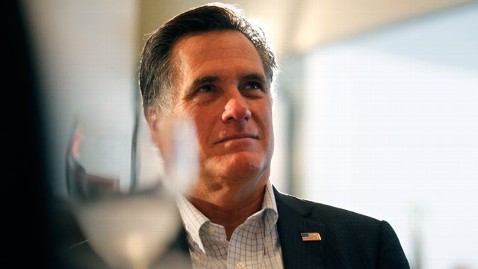'World News' Political Insights: What Mitt Romney Has Already Lost

(Gerald Herbert/AP Photo)
Analysis
Regardless of the outcome Tuesday in Michigan, Mitt Romney has already lost something big.
Romney can solidify his claim on the Republican nomination with a victory in his native state. But what he can't claim back is the ability to excite and perhaps simply unify the party behind his bid - critical shortcomings that are likely to haunt his bid for the presidency for as long as it lasts.
Romney's struggle to close the deal in Michigan, where his family has deep roots and where he cruised to victory four years ago, is underscoring longstanding concerns about his candidacy, in addition to creating new ones.
A loss to Rick Santorum would undercut Romney's claim on general-election electability. It would also boost Santorum's chances of winning the nomination, a development that many national Republican strategists privately dread, for fear of a November blowout.
But even aside from the results Tuesday, Romney's electoral challenges are growing, not shrinking, as the primary season drags on.
Besides having to answer questions about whether he's conservative enough, Romney now has to beat back suggestions that he can't connect with blue-collar voters whose support he'd need in the fall. Michigan, with its high unemployment and battered manufacturing base, is filled with the kind of voters whose support will determine the presidency in November.
The mood among the party faithful is anxious. One Republican governor is so concerned about damage being done to the candidates by themselves that he went so far as to say he's "pushing for a floor fight" at the convention.
"I would love to see a good old-fashioned convention and a dark horse come out and do it in the fall," Maine Gov. Paul LePage said while in Washington for a gathering of the National Governors Association. "The candidates in this primary have beat themselves up so badly it would be nice to have a fresh face that we all could say, 'OK.' The country deserves better than having people stand up and keep criticizing each other."
Then there are the concerns being voiced by prominent Republicans who decided to pass on 2012 bids of their own.
Indiana Gov. Mitch Daniels, while continuing to disavow interest in running, is warning that the process of choosing a nominee isn't helping the GOP.
"The problem I would worry about, and have all along, is that our side might not offer a bold enough and specific enough and constructive enough and, I would say, inclusive enough alternative to America," Daniels said over the weekend.
Former Florida Gov. Jeb Bush is going even further in openly fretting that the campaign is weakening the would-be nominees.
"It's a little troubling sometimes when people are appealing to people's fears and emotion rather than trying to get them to look over the horizon for a broader perspective, and that's kind of where we are," Bush said last week.
Former Gov. Haley Barbour, R-Miss., told ABC News last week that Romney's problem with GOP voters stems from the fact that he's the least conservative of the four GOP candidates left. Barbour, who would be among the brashest powerbrokers at a contested convention in Tampa, also pointed out that it's still possible for a new candidate to get in the race.
"If the Republican primary voters continue to split up their votes in such a way that nobody is close to having a majority, then there is a chance that somebody else might get in," Barbour said.
For his part, Romney is trying to convince Republican voters of his conservative bona fides, while also making an appeal to Michigan voters based on his family roots.
"I think the biggest misconception would be that I'm a guy that comes from Massachusetts, and therefore I can't be conservative," Romney said on "Fox News Sunday."
Romney may get close enough to making the case. Winning Tuesday in Michigan and Arizona would put him back on a track where his nomination would be overwhelmingly likely, the position of strength from which he's fought most of this campaign.
But even if he can make quick work of Santorum and Newt Gingrich - a highly questionable prospect even if he dominates in the next states to vote - the doubts being sowed about his candidacy now will come back in force by the fall. It's Republicans who are making sure of that.